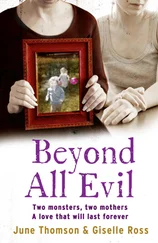He walked down Morocco Street, which was a dead end, and crossed the area of wasteground beyond it, then cut through a housing estate and circled round behind Guy’s Hospital. It was an eccentric route to take to the station, but he wanted to make sure he wasn’t being followed. What was about to happen should happen in private, unobserved. He heard a clock strike seven, the notes wobbling in the cool, glassy air.
Sixteen hours.
Waiting in the tube at London Bridge, with rush-hour just beginning, he thought of Glade again, her orange shirt, her long black skirt clinging to her hips. The way she looked when he first saw her.
That first sighting, a coincidence. Dark branches held against the glass roof. Flashed glimpses of her through the windows of a train. And then the distance between them widening as he deliberately let her go …
Before he left the flat that morning, he had called Jill. It was the first contact in more than a year. A woman answered. Jill’s mother. He asked if Jill was up yet.
‘Who is this?’ she said.
‘Barker Dodds.’
‘Oh.’
She had never approved of him, wanting something better for her daughter. He wouldn’t have been surprised if she had told him that Jill was away on holiday, he wouldn’t have blamed her for lying, but instead, after a moment’s hesitation, he heard her put the phone down and call Jill’s name. Through the kitchen window he watched Lambert’s instructions burning. He saw how the flames seemed to taste the air around the edges of the bowl. He must have waited minutes. At last he heard footsteps, faint at first, but growing louder.
‘Barker?’
She sounded just the same. It was strange how the sound of someone’s voice could close a gap. As if the last fifteen months had never happened.
‘How are you, Jill?’
‘OK. Tired.’ She yawned.
‘You working?’
She smiled into the phone. You can hear somebody smile. ‘Same shitty building society …’
He smiled too. She was just saying that. She loved her job.
‘Have they promoted you yet?’
‘Not yet. The end of the year maybe.’
The end of the year. How far away that sounded. As far away as the Dark Ages he had recently been reading about. In fact, in some ways, the Dark Ages seemed closer, less mysterious.
‘Barker?’
‘Yes?’
‘What about you? What have you been doing?’
‘Nothing much.’
In the silence he heard the scratch of the flint on a cheap lighter as she lit a cigarette, the faint kiss of her lips separating from the filter as she inhaled. She had always liked to smoke when she was on the phone.
‘Anyhow,’ he said, ‘I just wanted to ring you up.’
‘That’s nice.’
‘Well, I should be going.’
‘Will you ring again?’ She seemed to be saying she would like it if he rang but, at the same time, she didn’t want to pressurise him into anything. Also, perhaps, for her own sake, she couldn’t risk putting it that bluntly.
‘I don’t know,’ was the best that he could manage.
Silence fell between them once again. He could hear her breathing out, almost the same sound as when you blow into the red part of a fire to get it going.
‘You never came for me,’ she murmured. ‘I thought you’d come for me.’
He didn’t speak for several seconds. He couldn’t.
‘Barker? Are you there?’
‘I think about you, Jill,’ he said at last, then he hung up.
She couldn’t phone him back, of course; she didn’t know the number. She probably didn’t even know that he had moved to London — and by the time she found out, he’d be gone.
The tube hurtled into the station, startling him. Just for a moment he had forgotten where he was.
The Northern Line. A pungent smell of cinders and scorched rubber, a smell of wires short-circuiting …
His phone-call to Jill — he wasn’t sure it had been such a good idea. That hesitation in her voice, that generosity. Once again, he had come away with the sense that it had all been his own doing: some inability, some lack, some failing on his part that he could not explain, not even to himself. He glared at the people sitting opposite, as if he might shift some portion of the blame to them. A thin man in a pinstripe suit stood up suddenly and moved to the far end of the carriage. Now the seat was empty, Barker could see himself reflected in the dark glass of the window, his forehead stretched and bulbous, the sockets of his eyes filled to the brim with shadow. It was a distortion, but it didn’t seem untrue.
He changed trains at Elephant & Castle. Caught in a surge of commuters, he found himself wedged into the corner of a carriage with his head turned sideways against the roof. He was staring at a man’s ear from a distance of about six inches — a fierce bristling of ginger hairs, the lobe like something botched, vaguely thalidomide. The man seemed to be trying to work one hand down the side of his body, but the carriage was so crowded that he was having difficulty even moving his arm. At last he succeeded, and his hand appeared in the pocket of air below his chin. The hand opened cautiously, revealing two Maltesers. They rolled across his palm, first one way, then the other, reminding Barker of one of those infuriating games where you have to try and fit small silver balls into even smaller holes and keep them there. Just before Charing Cross the man lowered his head and, reaching out with his lips, drew the Maltesers deftly into his mouth. Then he turned and pushed towards the doors.
Four stops later, Barker changed to the Hammersmith & City line. The train emptied a little. At that time of day most people who had jobs were travelling into the centre. He should have been on the way to work himself, of course, but the idea only occurred to him remotely, like the light issuing from a distant star. He hadn’t thought of calling the shop, for instance, even though he was aware that Higgs might feel let down. It would have been too much of a distraction. And besides, his letter would arrive soon enough. In the meantime, he was overtaken by a kind of confidence, a surprising absence of responsibility. He had the feeling he was flying on automatic pilot. As obstacles presented themselves, so adjustments would be made. He wouldn’t even really be involved.
Which was just as well, perhaps. Though he had a plan now, he had no idea where it had come from or whether it was going to work. Plans depend on your ability to predict the unpredictable. You have to prepare the ground, allow for every eventuality. He had notes on Glade Spencer, and he had watched her, followed her — but how much did he really know? It seemed quite possible that he had underestimated the difficulty of the task that lay before him. Maybe he was even living in a dreamworld. At the very least, he could expect a few moments of violence. He would have to instil a sense of fear. Well, it wouldn’t be the first time. And then? Should he tell her the truth? If he did, how would she react? From that point onwards he would be entering the unknown.
Standing outside the tube station at Latimer Road, he checked his watch. Just under fourteen hours left. He looked around. A black cat crouched beneath a parked car, its eyes as bright and flat as sequins. A woman in a shell-suit wheeled an empty pushchair out of a paper shop. There was the smell of drains. A sudden irritation ran through him: one of his hands flew upwards, skimming his forehead, as if to brush away a fly.
He moved north, covering the distance between the station and her house as quickly as he could. At eight-thirty-five he was turning the corner into her street. That was good. One girl would already have left for work, the other would just be waking up. Above his head a plane moved with slow, hydraulic force towards the airport fifteen miles to the west. The grey sky crackled in its wake. This was it. He walked up to the front door and pressed the bell. After a moment he heard footsteps on the stairs. Through the frosted glass he watched her float towards him, her identity disguised, scrambled, reduced to a shifting pattern of abstract shapes and colours.
Читать дальше












